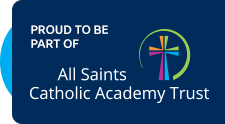404: Page Not Found
Whoops! The page you are looking for has been removed or had its name changed.

St. Bernadette Catholic Primary School
Learning to grow in knowledge, faith and love
through friendship with Jesus and Mary


Whoops! The page you are looking for has been removed or had its name changed.
Formed in 2016, as part of the Diocese of Westminster's Academy Strategy, we provide a collaborative structure of school support and innovation for Catholic schools in South West Hertfordshire. Our vision of an 'Outstanding Education for All' comes from this desire to enable all members of school communities to flourish and succeed and to do all that we can to make our schools places where ambition for all is at the heart of everything that we do.
Visit Site